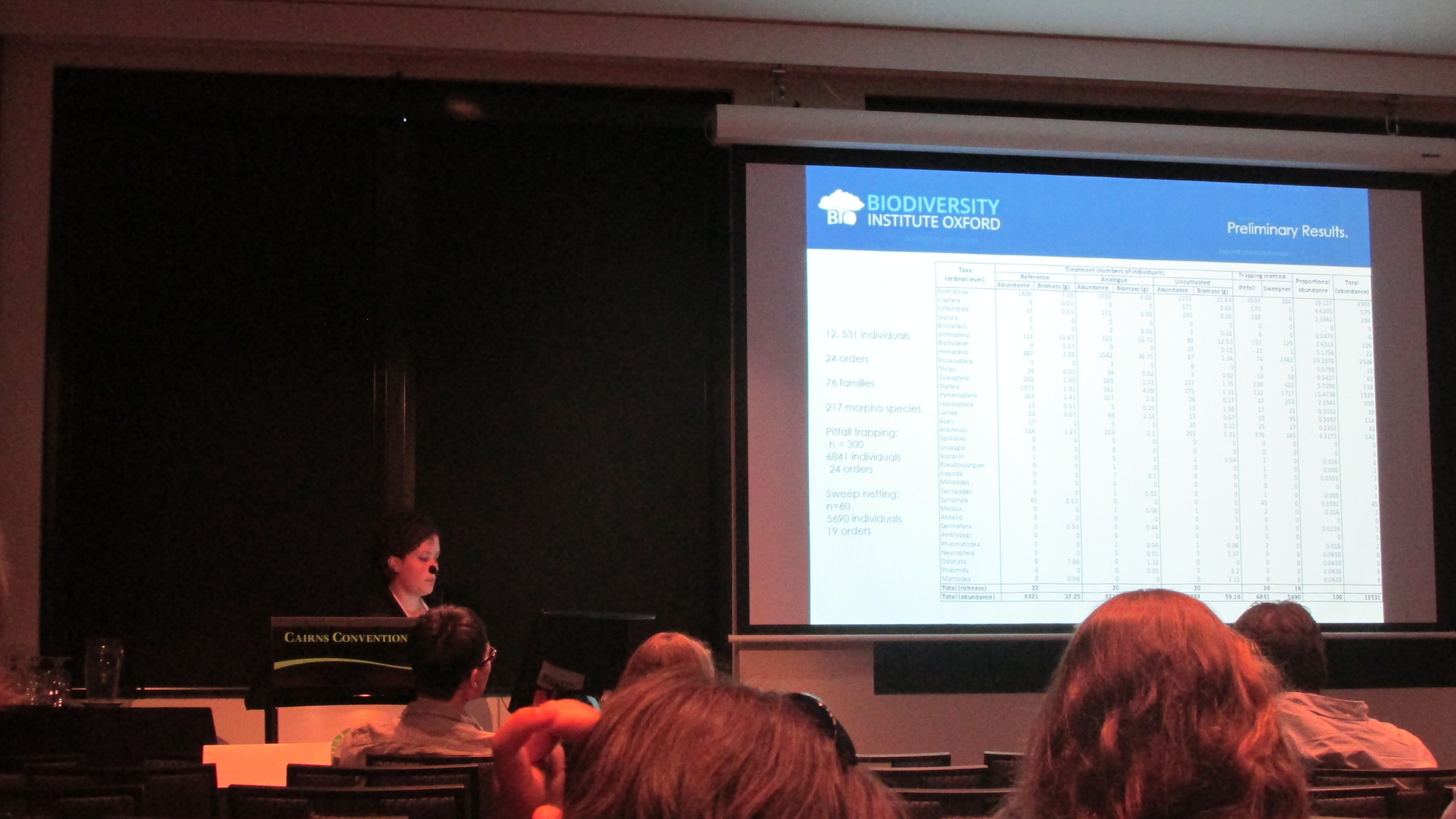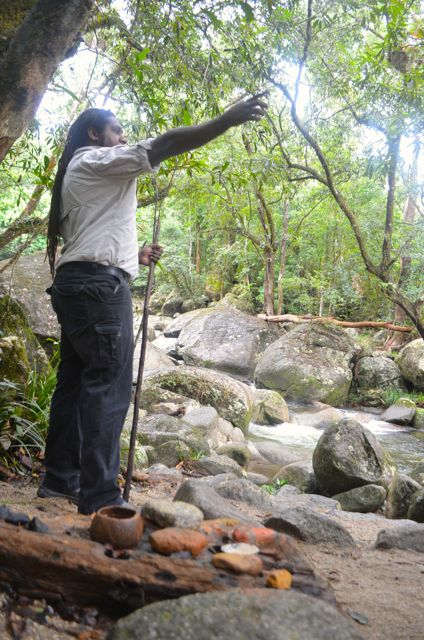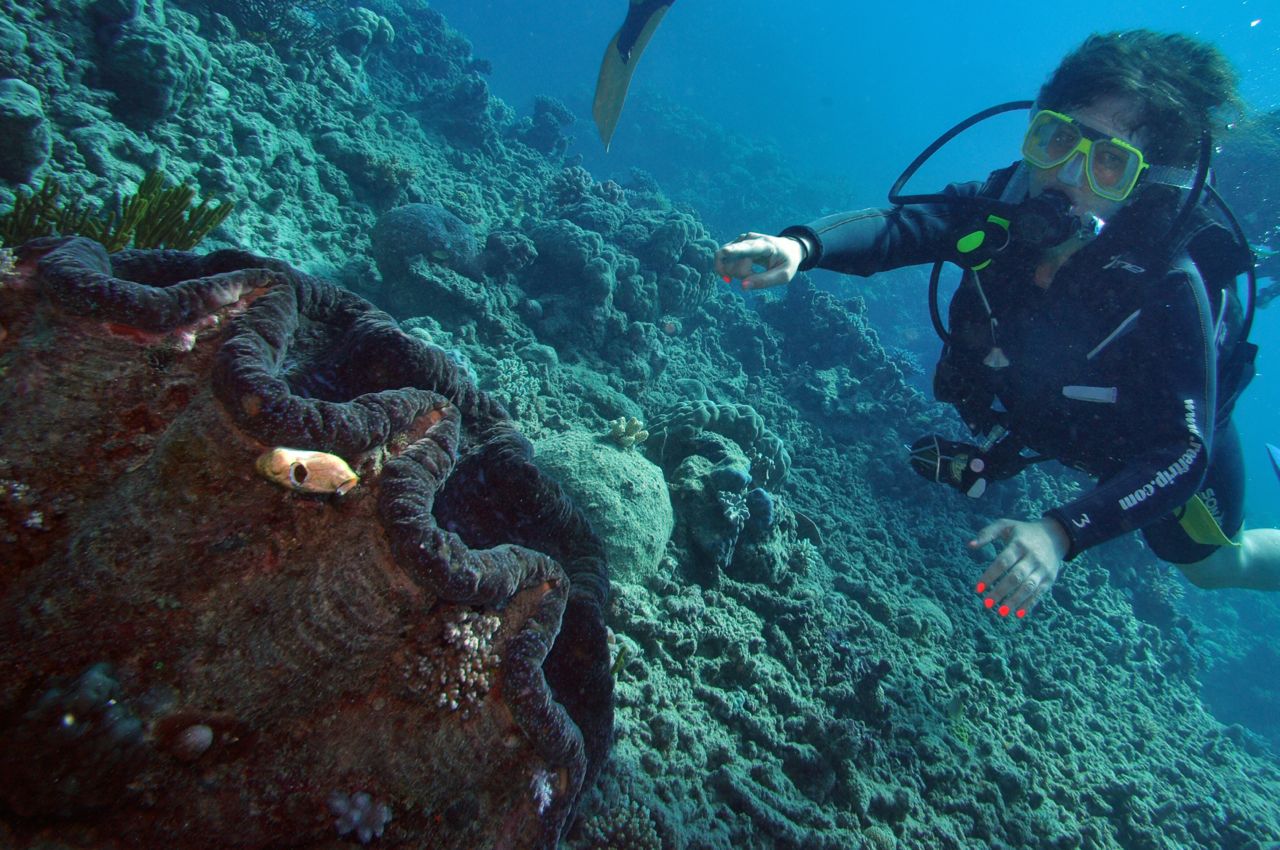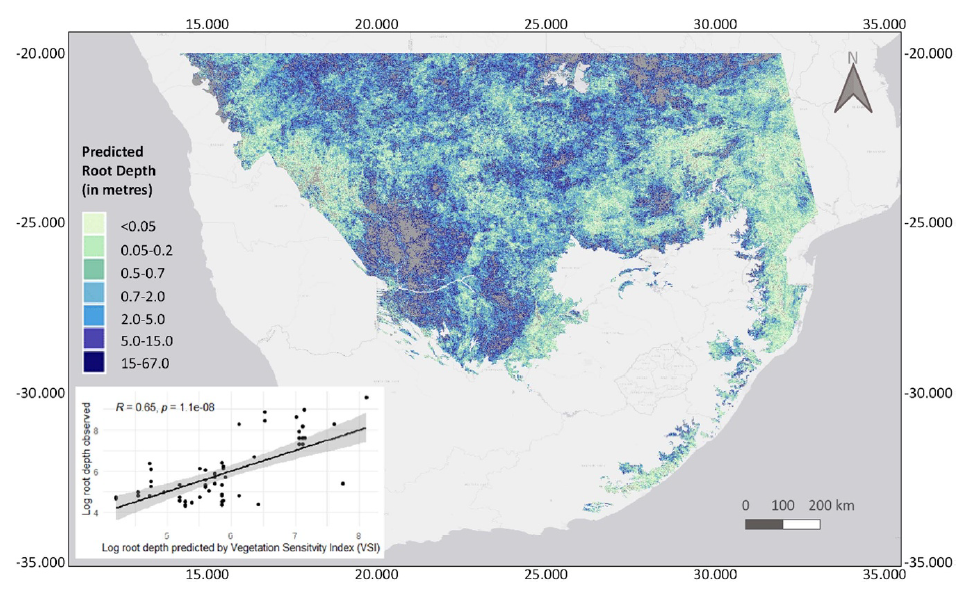News from the field : Tropical ecologists convene in the Wet Tropics
August 5, 2014
Situated in the picturesque Wet Tropics, with ancient forests dating back over 180 million years and world-renowned reefs, over 600 international researchers and practitioners convened at the 51st Annual Meeting of the Association of Tropical Biology Conservation in the third week of July 2014 in Cairns, Northern Queensland Australia to engage in rich discussions about the Future of tropical ecology and conservation.

Jessica Thorn, DPhil student in the Long-term ecology lab, was among the presenters on a panel on Post-Conversion Conservation. The conversation started with a bang, with a strong statement from Professor William Foster, Deputy Head of Zoology, Cambridge: “How we can feed the world without costing everything is the biggest problem in human history“. Preliminary results indicate how arthropod community composition and structure on small-holder vegetable plots may shift with predicted climatic change and variability.
The conference highlighted need for further research on ecosystem functional diversity in Africa. Moreover, small-holder farms and dry-forests are important case studies for research on climate change and biodiversity, in part because such places hold large populations who extract non-timber forest products, and these systems require a different set of management options compared with tropical regions. Terry Sunderland of the Center for International Forestry Research (CIFOR) reminded participants that such areas are “rural and remote, characterized by high levels of poverty and lack of infrastructure. Integration of livelihood outcomes is needed in a more holistic way, through equity and appropriate governance.”
Common themes across sessions pointed to current trends and emerging areas of research in tropical ecology, such as
(1) Climate change biology and predictions of biodiversity range shifts using altitudinal gradients in the tropics.
(2) The impact of drought and road construction on evapo-transpiration rates in the Amazonia and Malaysia.
(3) Long term ecological reconstruction using pollen records, fossil records and dendrochronology.
(4) Providing win-win solutions to enhance ecosystem function, biodiversity and yield in agricultural landscapes. A number of presentations presented results from data collected in palm oil, jatropha and cocoa cultivated landscapes, showing results of species shifts, potential of fertilizer optimization, the state of evidence on riparian buffer strips.
(5) Management issues faced by conservation development practitioners, particularly in Papua New Guinea, Indonesia and Thailand. This included discussion of alternative development models using quantifiable metrics with multiple outcomes to address issues of poverty, livelihoods, nutrition and conservation. Chris Margules (CSIRO, the Australian Federal Government’s Marine and Tropical Science Research Facility) summed this up stating: “Ecosystem processes occur at scale and so any intervention needs to occur at land/seascape scale and decisions need to incorporate what is happening at the larger scale. We need both the enabling policy environment and local community engagement… Development has to be built on a stable and productive local economy. There is a diversity of potential development models and we should not be stuck on the idea that one size fits all. We need to scale up using a range of development options and look for multiple outcomes.“
(6) Forest restoration and creative solutions in contexts where land tenure agreements are not formalized and challenges persist with long-term governance of restoration sites. Investigations also looked into the viability and sustainability of funding mechanisms such as REDD+ and the Voluntary Carbon Standard for such efforts.

Cameron Buchanan, grew up learning about the traditional heritage of the Daintree National Park and Mossmans Gorge. Here, explains the Dreamtime stories to visitors on a field trip to the tropical forest.
Towards the close of the meeting, the research–policy interface was emphasized by Australian Senator and leader of the parliamentary caucus of the Australian Greens Christine Milne. She sent a strong call to scientists to “think about how our expertise can be matched with someone else’s capacity and make sure that it can help.” Scientists issued a strongly worded statement in response to current environmental concerns regarding government approval and public subsidization of a reported AUS $9.5 billion (www.greatbarrierreef.org.au) for a coal mine and harbour development in the southern section of the Great Barrier Reef. An estimated 5m tonnes of material will be dug up and deposited on the reef, threatening over 54-million year old sediments. Because of the global significance and potential impact, this is a major threat to the site’s World Heritage Status. In a statement issued, scientists at the ATBC urged the Government to consider the costs and benefits that would result in sediment deposition and dredging of this World Heritage Site.
The meeting was an overall success and provided a valuable summary of the state of evidence and research in the field of tropical ecology conservation.
Collaborators for Jessica’s research presented at the conference include Jake Snaddon (University of Southampton),Darren Mann (Natural History Museum, University of Oxford) and Professor Kathy Willis (University of Oxford/Royal Botanic Gardens Kew). Funding for the conference was kindly provided by the British Ecological Society, and the Department of Zoology, Oxford.

The Association of Tropical Biology Conservation issued a conference declaration in response to a posed threat to the beautiful Great Barrier Reef. Dated back to 54 million years, the southern reef is under threat of dredging and sedimentation deposition to make way for a coal mine and harbour development.
FURTHER LINKS
Guardian article on harbour development, published 1 August 2014:
http://www.theguardian.com/environment/2014/aug/01/-sp-great-barrier-reef-and-coal-mine-could-kill-it
Cairns declaration of support for stronger protection of the Great Barrier Reef:
ATBC 2014 Cairns Declaration in Support of Stronger Protection of the Great Barrier Reef
Association of Tropical Biology Conservation Conference website:
http://www.atbc2014.org/
Latest News
Vector Atlas Engagement and Partnership Meeting, December 2022

The Vector Atlas team is looking forward to welcoming representatives from over 15 African countries to the first Engagement and Partnership Meeting to be held at the International Centre ... Continue reading
Seeing roots from space

A new study led by Dr Nicola Kühn during her DPhil associated with the lab titled “Seeing roots from space: aboveground fingerprints of root depth in vegetation sensitivity to ... Continue reading
Vector Atlas Spatial Modelling Workshop, November-December 2022
We are excited to be holding the Vector Atlas Species Distribution Modelling Training Course at the International Centre of Insect Physiology and Ecology (icipe) in Nairobi, Kenya, 30 November ... Continue reading
Vector Atlas at the 8th Annual PAMCA conference

The Vector Atlas team had a great time at the 8th Annual Pan-African Mosquito Control Association (PAMCA) conference held in Kigali, Rwanda, from 26 to 28 September 2022. Excellent ... Continue reading
Vector Atlas Kick-off Meeting

The international Vector Atlas team gathered at the International Centre of Insect Physiology and Ecology (icipe) Duduville campus in Nairobi from 4 to 8 July 2022 to celebrate the launch ... Continue reading
